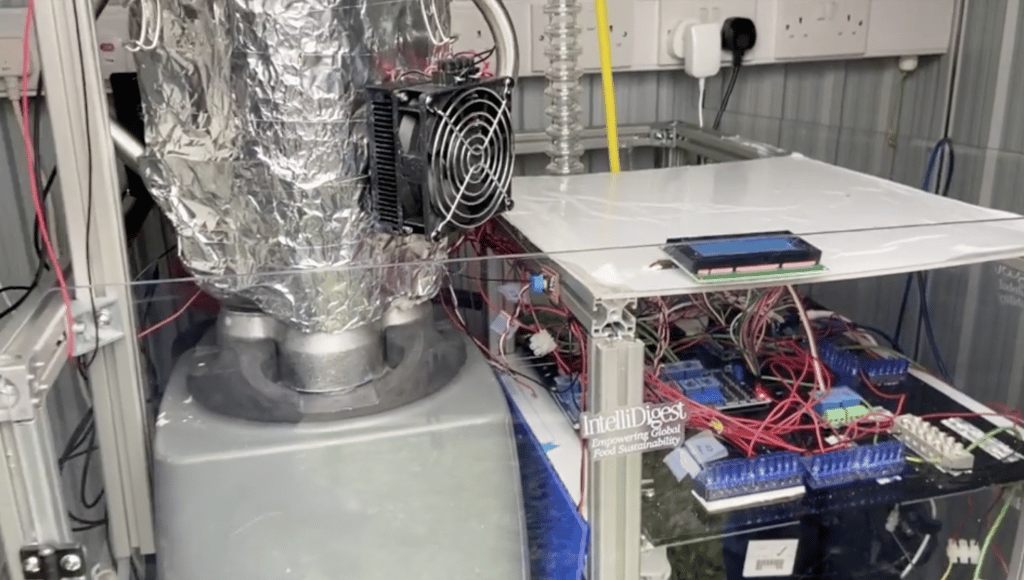Newsletter Signup - Under Article / In Page
"*" indicates required fields
After obtaining a PhD in environmental engineering, Ifeyinwa Kanu set up IntelliDigest in 2016. Based in Edinburgh, Scotland, at the Heriot-Watt University Business School Incubator, the biotechnology company specializes in food sustainability.
The company aims to address the sustainability challenges faced by the entire global food system, including producers, processors, manufacturers, retailers, and consumers. This means helping move toward a circular food system that is capable of feeding the growing global population.
IntelliDigest said it is looking to tackle food waste and loss. It has developed the iDigest, a nature-inspired robot, which is an on-site food waste processor. It takes food waste, which it transforms into nutrients that can be used for sustainable food production.
The odorless concentrate that is created can be used for food production instead of fertilizers. The process transforms food waste in less than three hours. An app can also be used to give insights on the waste.
The company’s iSaver is another of its products, designed as a solution to edible food waste. It was designed for use in residential, industrial and commercial settings, and ensures temperature-controlled food safety.
SusChem is IntelliDigest’s platform for sourcing sustainable bio-nutrients derived from food waste.
For the first of its special newsletters, Labiotech visited IntelliDigest in Edinburgh to learn more about the issues, and how the company is making a difference in taking on food waste.
Partnering 2030: FME Industries Report







